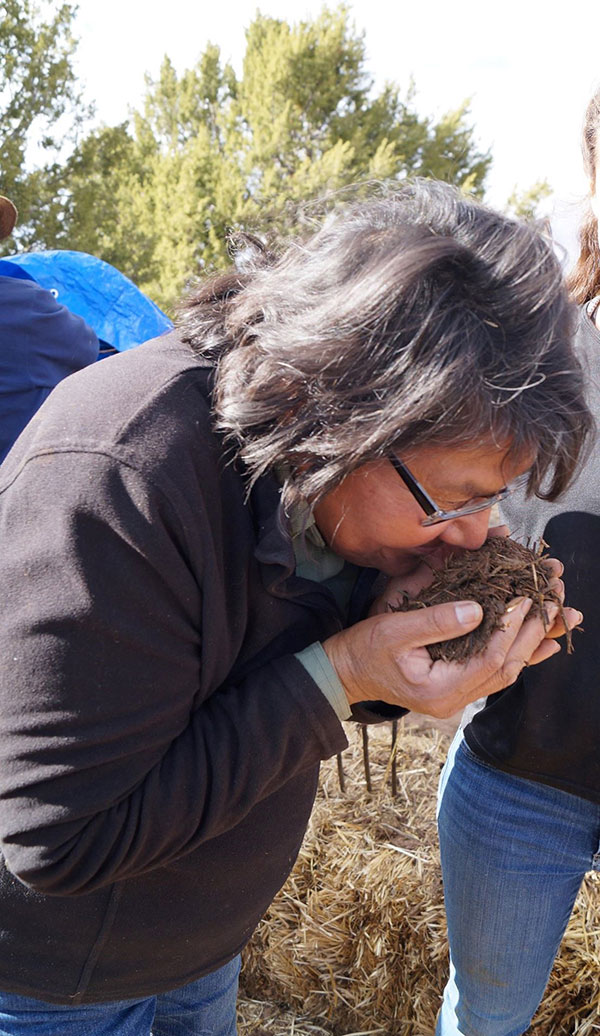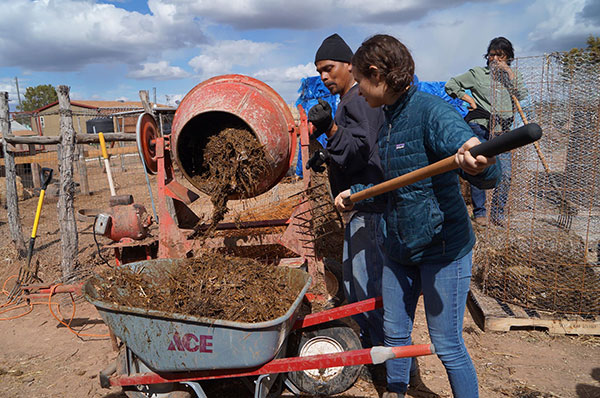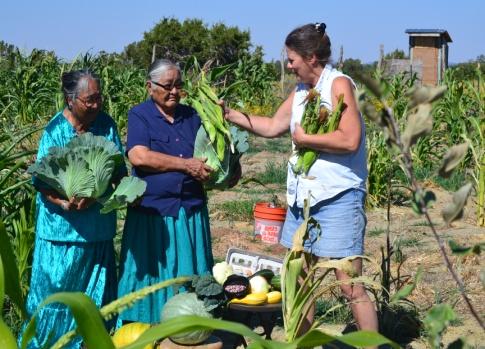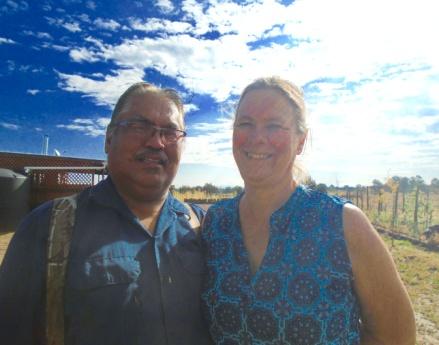Ed Maibach is the director of the George Mason University Center for Climate Change Communication
Located on Navajo Nation, 7,100 feet above sea level, in the hauntingly beautiful New Mexican mesa lands south of Gallup and west of the Continental Divide, is Spirit Farm, a working demonstration farm owned and operated by James and Joyce Skeet. Spirit Farm is also the headquarters of Covenant Pathways, a Native-led organization located on the Navajo reservation whose mission is to teach soil restoration techniques to Native farmers.
It’s here that James, his friend Owl McCabe—who directs the Work in Beauty Eco-Regenerative Learning Center, a sister soil restoration demonstration farm on Zuni lands—and other members of their team are focused on a stunningly important lesson about climate solutions: soil, unlike dirt, is alive.
To appreciate the importance of this lesson in a global context, consider the most recent report of the Intergovernmental Panel on Climate Change (IPCC), a special report focused on the importance of land use and agriculture in climate change. Jonathan Foley—a climate solutions expert who is the Executive Director of Project Drawdown—summarized the key findings of this report in language accessible to all. In his brief essay, Farming Our Way Out of the Climate Crisis, he made clear that restoring soils to good health—through forest restoration and planting trees, managing grazing lands so they accumulate soil carbon, and using “regenerative” farming techniques to rebuild croplands—is one of the world’s most promising climate solutions.
At Spirit Farm, James and Owl are doing the work to understand the nature of soil life and the importance of healthy soils. They value guardianship of the land, including the soil, as something sacred—which is an example of indigenous knowledge they are willing to share with all to help heal our planet. Their work complements the IPCC’s global perspective to make a compelling case for the critical role of soil restoration in ensuring the health of our climate, and the health of all people.
The Navajo and Zuni communities experience some of the highest rates of food insecurity in the United States, with some 75% of community members lacking reliable access to food of sufficient quantity and quality. This is due, in part, to historical trauma suffered by both the people and the land—trauma that essentially devastated indigenous people’s store of knowledge about managing the land, growing nutrient dense food and living with bounty rather than poverty. With the hope of restoring health to both the land and people, Covenant Pathways—in partnership with Work in Beauty—has been providing training in microbiological composting and indigenous farming practices across the Navajo and Zuni reservations since 2015.
Why Soil?
 Like human communities, soil is a complex and diverse community of organisms, building materials and nutrients. And like human communities, soil communities are fragile; human activities—including plowing and application of pesticides, herbicides and fungicides—can disrupt and severely degrade the health of soil.
Like human communities, soil is a complex and diverse community of organisms, building materials and nutrients. And like human communities, soil communities are fragile; human activities—including plowing and application of pesticides, herbicides and fungicides—can disrupt and severely degrade the health of soil.
The fragility of soil health is illustrated by a story James tells about his grandfather. His grandfather was the first member of his family to use till farming methods on the land currently known as Spirit Farms—using methods taught to him by white people. During the first several growing seasons, his grandfather’s harvests were bountiful. By the fifth growing season, however, the harvest was diminished, and by the sixth—and thereafter—the harvests were largely a bust. Plowing had severely degraded the semi-arid New Mexico soil to the point of rendering it non-viable as farmland.
Healthy soils play a critical role in cultivating a stable climate. Through photosynthesis, plants and trees capture heat-trapping carbon dioxide in the atmosphere and return it to the soil—where it, in turn, sustains soil health, directly benefiting plants and trees, and indirectly benefiting people and other animals who eat the fruits of the earth. By keeping the build-up of carbon dioxide in check, plants and soils help maintain the stable climate in which human civilization emerged and thrived over the past 10,000 years.
The Project
Over the next two years, the Covenant Pathways Health and Climate Solutions project will evaluate the impact of the microbiological composting and indigenous farming practices in use at Spirit Farm, Work in Beauty Farm, and other small farms across the Navajo and Zuni reservations. Specifically, they will assess the impact of these practices on both soil health and on the nutrient value of the food grown. They will also conduct a controlled field trial of various biological farming methods to determine which is optimal for farming in the semi-arid conditions of the Southwest.
When asked what one health indicator is likely to improve fastest if microbiological composting and indigenous farming practices once again become the norm in Navajo and Zuni, James reflected for a moment and said: “Identity, our sense of who we are will become stronger, healthier.” Covenant Pathways, having witnessed the failure of a quick-buck approach to farming, is testing a new, regenerative approach, with the promise of restoring the soil, their identity and our best hopes for health for all people.
It’s a powerful reminder of the humbling and perhaps most fundamental insight Native American culture shares with the social determinants model in the era of climate change: that our health and well-being are inextricably dependent on the health of the world we inhabit.
Suggested citation: Maibach, Ed. “The Soil Life Research of Covenant Pathways.” Health and Climate Solutions Blog: George Mason University. October 3, 2019.



